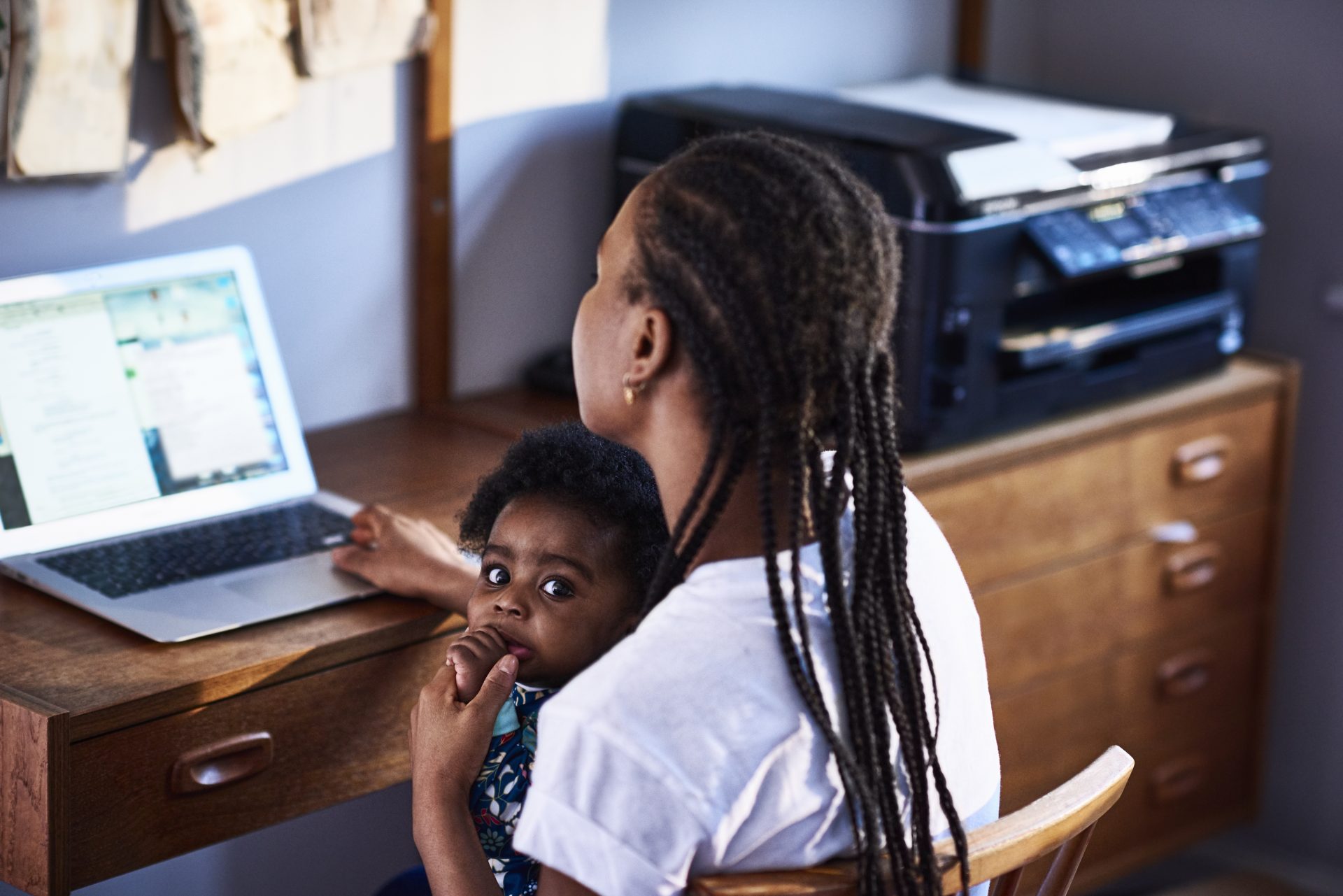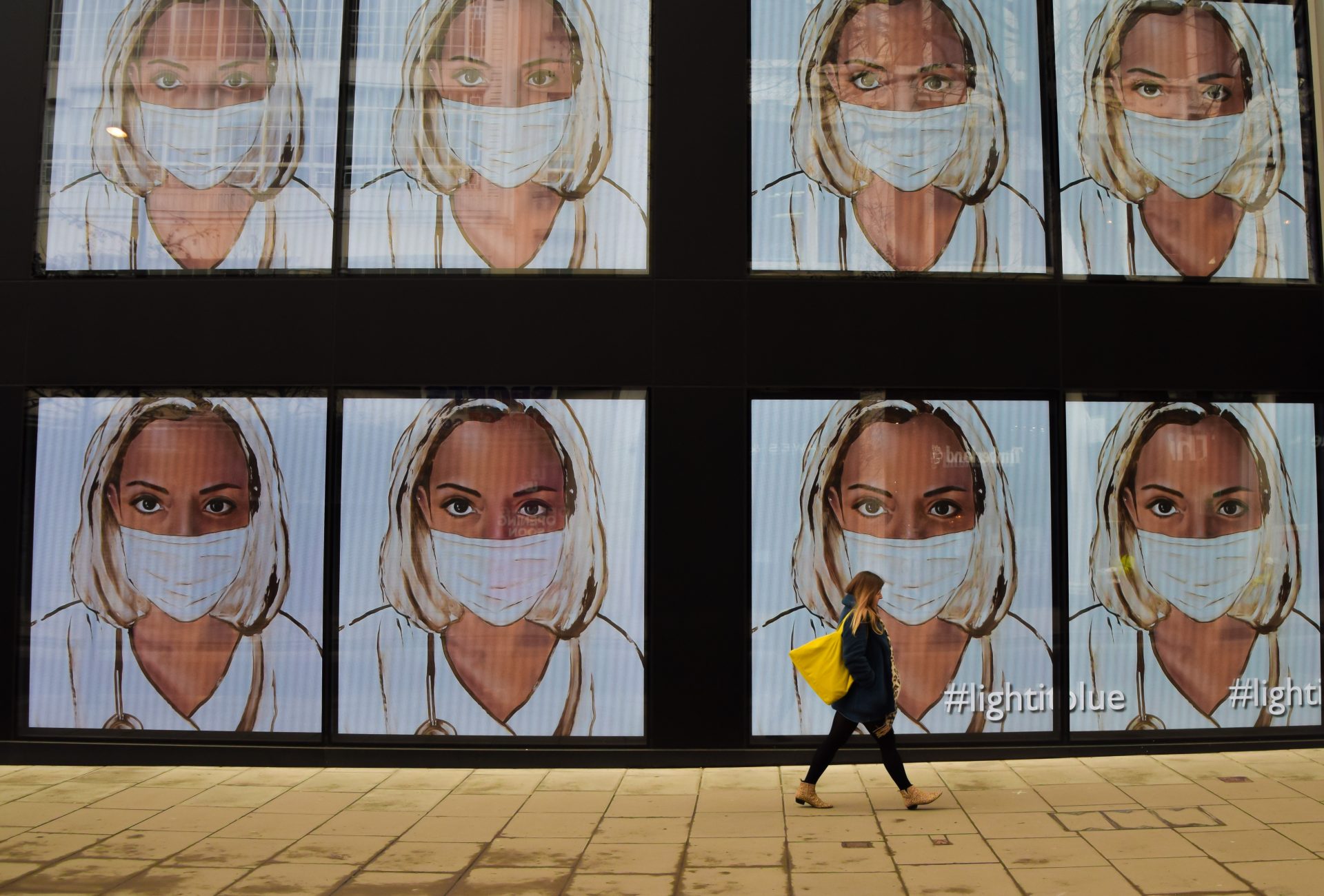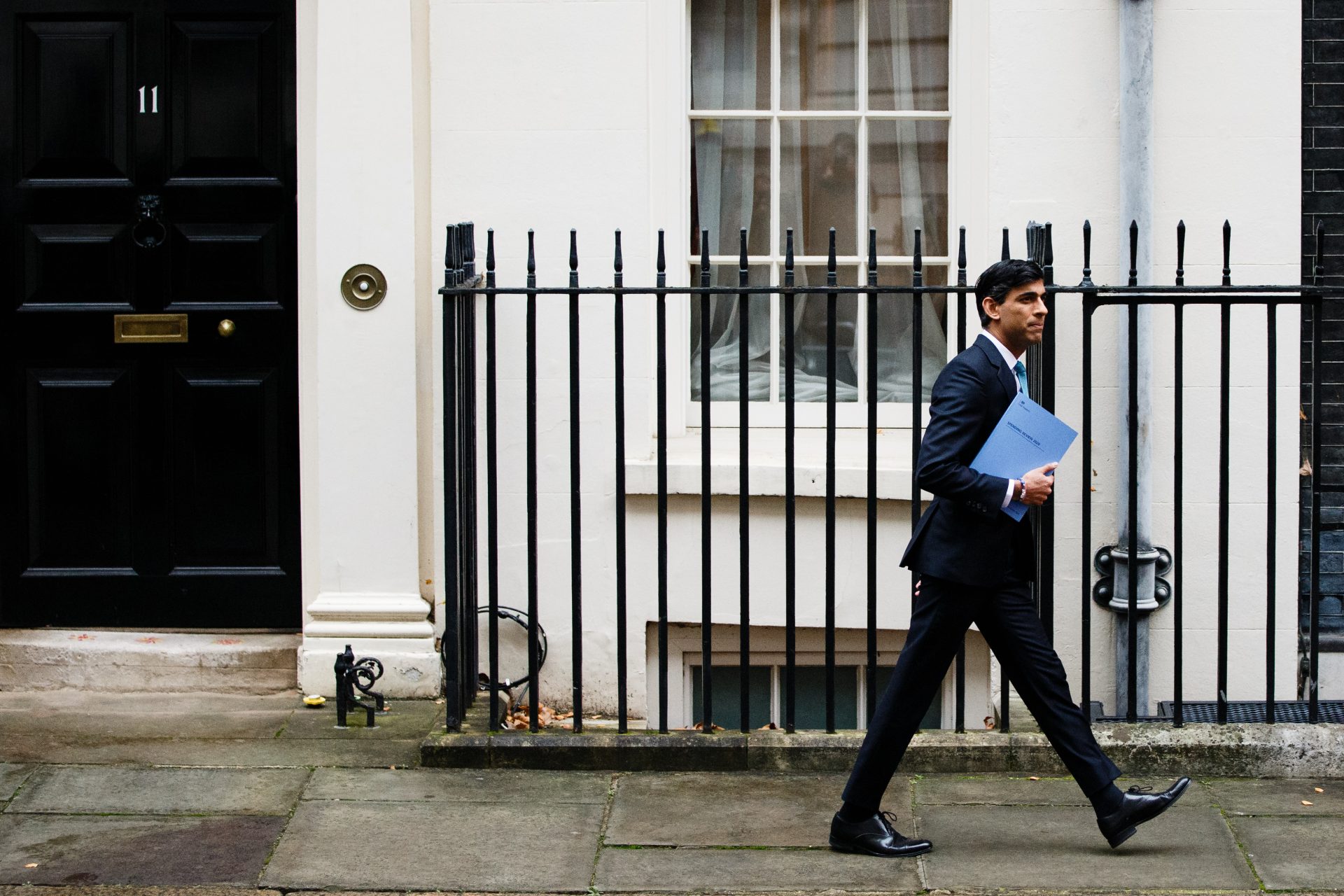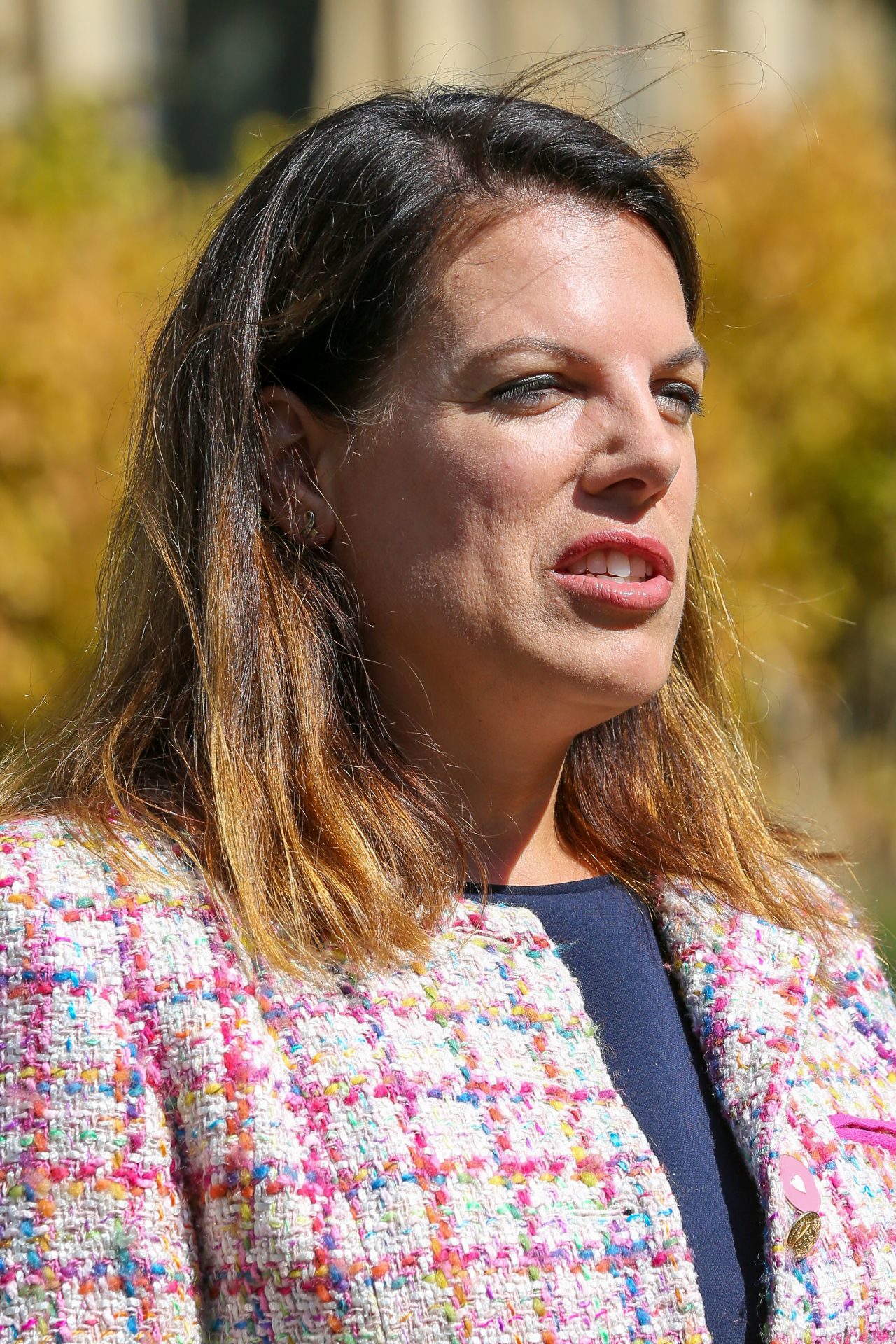Written by Moya Crockett
Moya is Contributing Women’s Editor at stylist.co.uk and Deputy Editor of Stylist Loves, Stylist’s daily email newsletter.
Boris Johnson has unveiled his ‘roadmap’ out of lockdown – but critics say that women’s rights and needs are being ignored. Here’s what you need to know.
With the possible exception of loungewear designers and takeaway app owners, very few people have had a good pandemic. But over the last year, it’s become clear that this is a period of acute crisis for women.
There’s the well-documented issue of rising domestic abuse, a crime that predominantly affects women. There’s the fact that the deadline for gender pay gap reporting was recently pushed back by six months (after being suspended entirely in 2020), something campaigners warn sends “a worrying message” about the importance of gender equality.
Our careers and finances have taken an alarming knock, too. Since March 2020, studies have found that women are more likely than men to have lost or left their jobs because of coronavirus-related challenges and more likely to have experienced an overall drop in earnings. Unsurprisingly, the Covid-19 era is also having a profound effect on women’s mental health. Research by UCL shows that women in England consistently reported higher levels of depression, loneliness and major stress than men between March and September 2020, with a new study by Imperial College London suggesting women are much more likely to have experienced anxiety during the pandemic.
“Our sense is that women are disproportionately affected on the ground in the Covid emergency, as is the case in many emergencies – in particular humanitarian disasters and with climate issues,” says Helen Pankhurst, senior gender advisor at the charity CARE International UK.
Thanks to the ‘roadmap’ announced on 22 February, we now have a rough idea of how Boris Johnson hopes to steer England out of the coronavirus crisis. (The devolved governments in Wales, Scotland and Northern Ireland have their own Covid-19 exit strategies.) If all goes to plan – and that is, as ever, a spectacularly big if – people in England could be picnicking with friends by 29 March, back in our hairdressers’ chairs by 12 April, and (in what currently seems like a laughably fragile fantasy) dancing in nightclubs by 21 June.
But while there is a plan for extricating ourselves from the grip of the pandemic, critics say it doesn’t contain enough detail about how women will be supported.
“One UN study analysing how different countries responded to Covid-19 suggested that the UK had not put in place a single policy to address gender violence, help women to deal with the social impact of the crisis or bolster women’s employment and economic security,” says Labour MP Bell Ribeiro-Addy, who sits on the Women and Equalities Committee.
While no one is immune from the loneliness, anxiety or grief that Covid-19 has wrought, the coronavirus crisis has not affected all women in the same way. Black, Asian and minority ethnic (BAME) women, for example, are more likely than white women to worry about paying their rent or mortgage during the pandemic – just as disabled women are more likely than non-disabled women to report struggling with coronavirus-related financial anxieties.
Working-class women have borne the brunt of cuts to working hours, while women under 30 are overrepresented in sectors worst affected by lockdowns. Caring responsibilities have shaped our pandemic experiences, too: by the end of May 2020, mothers were 1.5 times more likely than fathers to have quit or lost their jobs.
As a result, there are few Covid-19 recovery policies that would instantly benefit ‘all women’. Instead, gender has to be considered as one source of inequality that overlaps with many others.
“The latest job loss figures hammer home the government’s failure to address the structural racism of the labour market, with Black women three times more likely to be unemployed than their white counterparts,” says Ribeiro-Addy. “The government really doesn’t seem to have any policies to address this.”
Mandu Reid, the leader of the Women’s Equality Party, points to data showing that women make up 98% of those doing the highest-risk jobs for “poverty wages”, as well as 77% of healthcare workers, 83% of social care workers and 92% of childcare workers.
“Black and minority ethnic women are overrepresented in all of these fields,” she says. “Women of colour, those earning low wages or in precarious employment are being pushed into poverty as the economic fallout from the pandemic deepens pre-existing inequalities.”
In a statement to Stylist, the government rejected the notion that gender has not been sufficiently considered in its pandemic response. “The contribution that women make to the economy is crucial. Which is why we’ve set out an unprecedented offer of support, including help for the sectors they are more likely to be employed in, protection for women-led start-ups and continued access to childcare and support with childcare costs,” said a spokesperson.
“Every department considers equality impacts in their policy-making, and an equalities assessment of the Coronavirus Act was published last year. As we seek to build back better following the pandemic, everyone will play a crucial part and we will reflect that in our policy development.”
That summary seems at odds with a recent report by the Women and Equalities Committee, which expressed concern that the “the government’s priorities for recovery are heavily gendered in nature” and described it as “astonishing” that there was no mention of childcare in the summer or winter economic statements.
The committee, which is dominated by backbench Conservative MPs, concluded that while the government acted quickly to implement schemes to protect jobs at the start of the crisis, “the design of these schemes overlooked – and in some respects continues to overlook – the specific and well-understood labour market and caring inequalities faced by women”.
It’s a view shared by the campaign group Pregnant Then Screwed, which recently took the government to court over its Self-Employment Income Support Scheme (SEISS). The organisation said the scheme indirectly discriminated against self-employed mothers, since payments are based on average profits between 2016 and 2019 (meaning women who took maternity leave during that time will receive less money). The group lost its case, but is considering an appeal.
“This isn’t just about the 69,000 vulnerable new mothers who have received a payment that is well below what they should have received,” Joeli Brearley, the founder and CEO of Pregnant Then Screwed, has said. “It is about the critical importance of maternity leave and ensuring that as a society we value it.”
Pregnant Then Screwed isn’t the only group to call for more Covid-19 policies that take gender into account. Last month, a group of unions and charities called on the Equality and Human Rights Commission (EHRC) to investigate whether the government has breached equality law during the pandemic.
An open letter, signed by organisations including Fawcett Society, Women’s Aid and Amnesty International UK, accused ministers of failing to uphold their legal duty to consider the impact of legislation on women.
“The policy decisions taken by government and other key public bodies in response to coronavirus are worsening the impact of the pandemic and deepening inequalities faced by women,” it reads. “The consequences of these decisions will affect women for years to come.”
Rosie Lewis is the deputy director at the Angelou Centre, a Black-led women’s centre in Newcastle, and was among those who signed the letter to the EHRC. “The women we support face a very complex interwoven web of different structural inequalities,” she tells Stylist. “During Covid, the issues that were already there were hugely exacerbated… Covid was almost an excuse for there to be a further disavowal of women’s and Black minoritised women’s rights.”
Representation on its own isn’t a magic bullet: there are plenty of female politicians who support regressive policies that harm other women. (There are also three senior female ministers – Priti Patel, Liz Truss and Thérèse Coffey – in Johnson’s cabinet.) Yet some research does suggest female legislators are more likely than male politicians to prioritise women’s rights and support policies that benefit the most vulnerable in society.
Because of this, some draw a line between the lack of Covid-19 recovery policies specifically designed to support women and the relative absence of women at senior levels of government.
“It comes down to representation at the top,” says Anna Whitehouse, founder of the Flex Appeal flexible working campaign. “We know having women at the top is good for business. And then you look at who is running the country… We are being governed predominantly by men who occasionally say ‘well done to all the mummies’ like we’re in 1951. Our voices simply aren’t being heard because those listening don’t represent us.”
CARE International’s Helen Pankhurst agrees. “Women are not in decision-making positions, and that impacts on what policies are made,” she says. “You’ve got this vicious circle – [women are] not in the places where they need to be and therefore the effects [of the pandemic] are greater on them.”
So if the current situation isn’t good enough for women, what needs to change? CARE International wants to see diverse women’s leadership prioritised throughout the G7 summit this summer, when global leaders will gather in Cornwall to discuss their Covid-19 recovery plans.
The Women and Equalities Committee, meanwhile, has recommended that the government conduct formal assessments of how its coronavirus job schemes could affect gender equality. Another cross-party group of MPs and peers has called for a government taskforce on women’s employment. Many organisations, including the Women’s Equality Party and the Women’s Budget Group, are campaigning for the government to increase investment in the ‘care economy’ – such as the childcare and social care sectors – in addition to the “shovel-ready” construction projects championed by the prime minister.
Ultimately, if we don’t see enough Covid-19 policies that take gender and other forms of inequality into account, it’s not because there aren’t enough ideas. There are roads out of the pandemic that will work for women – but it remains to be seen whether we’ll take them.
On 7 March, #March4Women will be campaigning for the UK government to be a global champion for diverse women’s leadership. Get your ticket to the #March4Women live event with Stylist and show your support by using the #StopTellingHalfTheStory selfie filter. Find out more
Images: Getty
Source: Read Full Article






